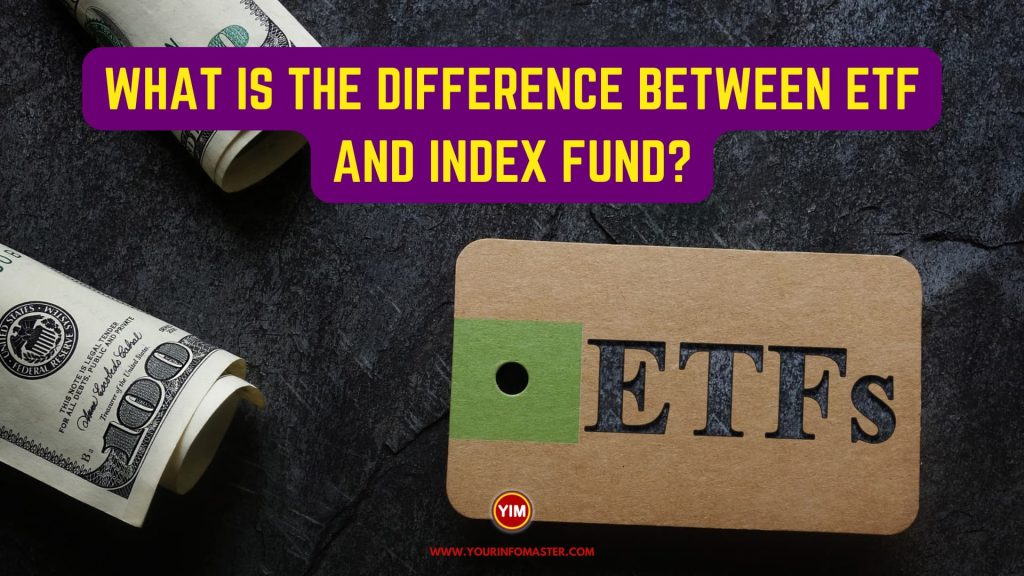I am going to explain the blog post “What is the difference between ETF and index fund?“
In the realm of investment vehicles, ETFs (Exchange-Traded Funds) and index funds have gained considerable popularity among investors.
While both offer exposure to a diversified portfolio of securities, understanding the precise differences between these two options is essential for individuals looking to make informed investment decisions.
In this blog post, we will explore the variances between ETFs and index funds, shedding light on their unique features and helping investors navigate the intricacies of these investment options.
Check also: What is the difference between Microeconomics and Macroeconomics?
5 Differences between ETF and index fund
Here is a concise list of five key differences that set ETFs apart from index funds. By comprehending these distinctions, investors can gain clarity on the characteristics, benefits, and potential drawbacks associated with each option, allowing them to make informed decisions based on their investment goals and preferences.
List of 5 differences between ETF and index funds:
- Structure and Trading
- Cost and Expense Ratios
- Transparency and Holdings
- Flexibility and Liquidity
- Tax Efficiency and Capital Gains
Check also: What is the difference between then and than?
Detail of 5 Differences between ETF and index fund
Here is the detail of 5 differences between ETF and index fund:
- Structure and Trading:
- ETF: Traded on stock exchanges throughout the day at market prices, offering intraday trading flexibility.
- Index Fund: Traded at the end of the trading day at the fund’s net asset value (NAV), limiting intraday trading opportunities.
- Cost and Expense Ratios:
- ETF: Often has lower expense ratios compared to index funds, making them a cost-effective investment option.
- Index Fund: Expense ratios can vary, but some index funds may have slightly higher expenses due to administrative costs.
- Transparency and Holdings:
- ETF: Discloses its holdings on a daily basis, allowing investors to see the securities held within the fund in real-time.
- Index Fund: Generally discloses its holdings on a quarterly basis, providing less frequent transparency.
- Flexibility and Liquidity:
- ETF: Offers intraday trading flexibility, allowing investors to buy or sell shares throughout the trading day at market prices.
- Index Fund: Redeemed or purchased at the end of the trading day at the NAV price, providing limited intraday trading opportunities.
- Tax Efficiency and Capital Gains:
- ETF: Typically more tax-efficient due to the creation and redemption process that allows for the avoidance of capital gains distributions.
- Index Fund: May generate capital gains distributions due to the need to sell securities within the fund to meet redemptions or rebalance the portfolio.
Check also: What is the difference between interest rate and APR?
Conclusion
Understanding the differences between ETFs and index funds is essential for investors looking to optimize their investment strategies. While ETFs offer intraday trading flexibility, lower expense ratios, and greater tax efficiency, index funds provide a more straightforward approach with limited trading opportunities. By considering factors such as structure, cost, transparency, liquidity, and tax efficiency, investors can select the investment vehicle that aligns best with their financial goals and preferences.
See also: What is the difference between Debit and Credit?
If you really enjoyed the article “What is the difference between ETF and index fund?,” then I would be very grateful if you’d help it spread by emailing it to your friends or sharing it on Twitter, Instagram, or Facebook. Thank you!
Have you read “What is the difference between ETF and index fund?“ Which of these blogs are you reading, and how is it similar to one of them?

